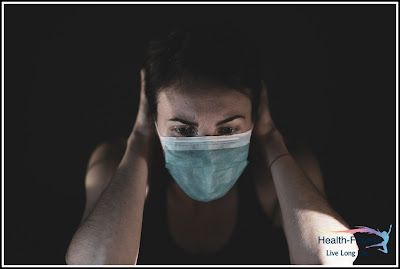Dengue Fever: A Mosquito-borne Disease
Dengue fever
A mosquito-borne illness
caused by the dengue virus, is a major public health concern worldwide. Hailing from the Flaviviridae family, this virus is primarily transmitted to humans
through the bites of infected female mosquitoes, specifically of the species
Aedes aegypti and Aedes albopictus.
Dengue fever is prevalent in over 100
countries, with the World Health Organization (WHO) estimating 390 million
infections annually. Tropical and sub-tropical climates, such as those found in
Southeast Asia, the Western Pacific, the Americas, and Africa, are especially
at risk due to the favorable breeding conditions for the carrier mosquitoes.
The time it takes for symptoms to appear after being exposed to the virus, known as the incubation period, varies from four to ten days.
What happens when a person has dengue:
When a person has dengue, they typically experience symptoms such as flu or typhoid high fever,
severe headache, pain behind the eyes, joint and muscle pain, rash, and mild
bleeding (e.g., nose or gums bleed, easy bruising). In severe cases, the
disease can progress to Dengue Hemorrhagic Fever or Dengue Shock Syndrome,
which can be life-threatening.
Dengue fever diagnosis:
Dengue fever is diagnosed
through a combination of clinical evaluation and laboratory tests.
During the clinical
evaluation, a healthcare professional will assess the patient's symptoms,
medical history, and conduct a physical examination. The presence of symptoms
such as high fever, severe headache, joint and muscle pain, and rash, along
with a history of potential exposure to dengue-carrying mosquitoes, can raise
suspicion of dengue.
Laboratory tests are then
performed to confirm the diagnosis. The most common diagnostic test is a blood
test to detect the presence of dengue virus or antibodies produced in response
to the infection. These tests may include polymerase chain reaction (PCR)
tests, which detect viral genetic material, or serological tests, which detect
antibodies against the virus.
It's important to note
that early in the disease, the virus may not be detectable in laboratory tests.
In such cases, repeat testing may be necessary if symptoms persist.
If you suspect dengue or
experience concerning symptoms, it is essential to consult a healthcare
professional for proper diagnosis and guidance on managing the illness.
Dengue
without fever:
Dengue is a viral disease
transmitted primarily by mosquitoes, particularly the Aedes aegypti species.
While fever is a hallmark symptom of dengue, the disease can also present
without it. In such cases, individuals may experience other common symptoms
such as severe headache, joint and muscle pain, rash, nausea, vomiting, and
fatigue.
There is no specific antiviral dengue fever treatment. Management of the disease focuses on relieving symptoms and includes rest, fluid intake to prevent dehydration and pain relievers. However, it's important to avoid medicines with aspirin, which could worsen bleeding.
Prevention of Dengue fever is largely
dependent on controlling the mosquito population and avoiding mosquito bites.
This includes eliminating mosquito breeding sites, such as standing water in
buckets, bowls, or flower vases, and personal protection measures like wearing
long-sleeved clothing and using insect repellent.
In terms of vaccines, the WHO recommends
the Dengvaxia (CYD-TDV) vaccine as part of a comprehensive approach to prevent
dengue in individuals aged 9-45 years, living in endemic areas and with a
confirmed prior dengue virus infection. However, the vaccine is not a
standalone tool and must be incorporated with other preventive measures to
effectively combat the disease.
Scientific research is actively ongoing
to develop more effective vaccines and antiviral drugs for dengue. For
instance, the development of a tetravalent dengue vaccine, which will protect
against all four serotypes of the dengue virus, is underway.
In conclusion, Dengue fever is a pressing
global health issue that requires a multifaceted approach to combat. While
there are no specific treatments, the key to managing this disease lies in
early recognition, symptomatic relief, and rigorous preventive measures. With
continued research and global cooperation, it is hoped that more effective and
accessible solutions can be found to reduce the burden of this disease.


